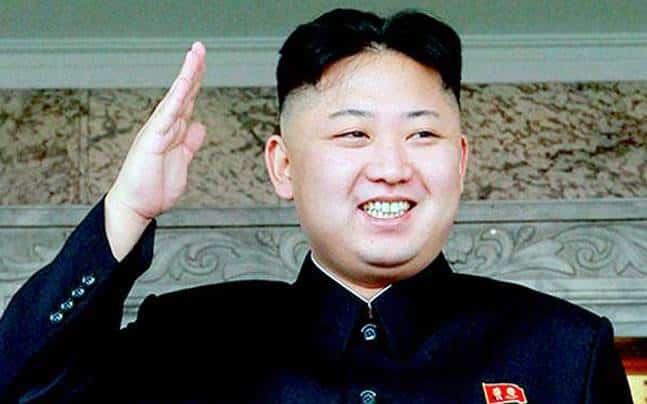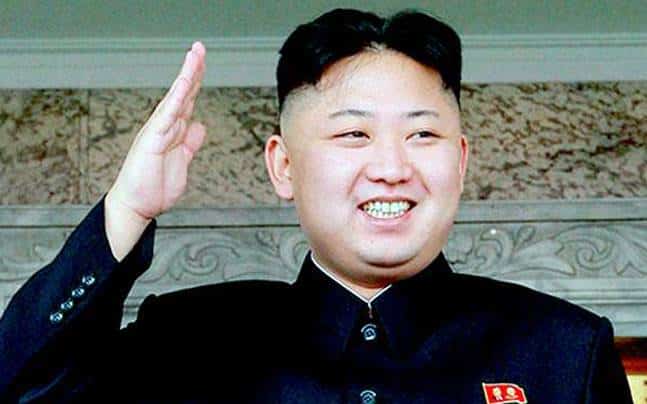After the in-your-face Fourth of July “gift” that North Korea delivered to President Trump in the form of an intercontinental ballistic missile test, I wouldn’t be at all surprised to see President Trump and the Pentagon retaliate by bombing North Korea. The reason goes not only to Trump’s erratic behavior, especially when teased or taunted, but also because a bombing attack would reflect the Cold War mentality that unfortunately still holds the Pentagon in its grip.
I’ll bet that most Americans today do not realize that during the Kennedy administration, the Joint Chiefs of Staff were recommending that the president initiate a surprise nuclear attack on the Soviet Union, much like the Japanese surprise attack on Pearl Harbor.
Why no congressional declaration of war against the Soviet Union first, as the US Constitution requires?
The Pentagon’s reasoning was that a surprise attack was necessary to knock out the Soviet Union’s nuclear first-strike capability and most of its retaliatory capability. If they were forewarned that such an attack was coming, such as with a congressional declaration of war, that would enable them to strike first with a nuclear attack on the United States.
Why was the Pentagon recommending nuclear war against the Soviet Union?
Remember: This was the Cold War, the era in which the Pentagon, the CIA, and the NSA — the three principal components of the US national-security state — were telling Americans that peaceful coexistence with the communist world was impossible. This was going to be a war to the finish, they firmly believed, with only one side standing at the end.
In the early 1960s, the Pentagon knew that the United States had vast nuclear superiority over the Soviets, notwithstanding Pentagon and CIA public statements to the American people to the contrary. But they also knew that it was just a matter of time before the Soviets increased their nuclear weapons to such an extent that US superiority wouldn’t make any difference. After all, if 100 nuclear bombs can wipe out a nation, who cares if one side has 100 and the other side has 1,000?
The Pentagon’s argument was this: Since war with the Russians was going to happen anyway at some point in the future, it would be in the interests of the United States to initiate the war now, before the Soviets had time to acquire more nuclear weapons and even achieve parity. In this way, the United States could wipe out most of the Soviet nuclear capability and win the war.
The operative word was “most.” When President Kennedy asked the Joint Chiefs of Staff how many Soviet nuclear bombs would be likely to hit the United States in a retaliatory strike, they responded that it might be enough to kill only 40 million Americans. Since the entire Soviet Union, including all the communists in the country, would be wiped out with a nuclear carpet-bombing campaign and since the US would have lost only 40 million Americans in a retaliatory strike, the U.S. would be considered the winner of the war.
As President Kennedy departed from a meeting with the Joint Chiefs of Staff in which their first-strike recommendation was discussed, he remarked indignantly to an aide, “And we call ourselves the human race.”
The thing that most of the mainstream media miss in the Korean crisis is the reason why North Korea has been striving for nuclear weapons. The US press continues to imply that North Korea wants such missiles for offensive purposes — that is, to initiate a nuclear war against the United States.
Not so. North Korea knows that if it did that, the US government would respond with the same type of carpet-bombing campaign that it waged during the Korean War, only this time with hundreds or thousands of nuclear bombs. North Korea does not wish to go out of existence, which is precisely why it has no interest in initiating a nuclear attack on the United States.
So why does North Korea want nuclear weapons, especially ones that can reach the United States? It wants them for the same reason that Cuba, another communist state, wanted nuclear weapons back in 1962 — for defensive purposes.
Defense against whom?
Defense against the U.S government, of course.
Think back to the Cuban Missile Crisis. Cuba had never attacked the United States or even threatened to do so. It was the CIA that had attacked Cuba. The reason? Regime change, a core principal of the U.S. national-security state since its inception after WWII. Both the Pentagon and the CIA were determined to oust Fidel Castro from power and replace him with a pro-US dictator, similar to the one who Castro ousted from power, Fulgencio Batista.
That was the purpose of those Soviet nuclear missiles in Cuba — not to start a nuclear war with the United States but simply to deter the U.S. government from invading Cuba again and effecting a regime-change operation there.
As we all know, even though the Cold War supposedly ended in 1989, the Pentagon and the CIA have never given up their dream of regime change in Cuba. That’s what the U.S. embargo is still all about.
By the same token, the Pentagon and the CIA have also never given up their dream of a regime change in North Korea, whose regime they believe is even more evil than the one in Cuba. North Korea knows that they have never given up that dream. It also knows that it could never defeat the United States in a war. Thus, North Korean officials know that their only chance is to acquire nuclear weapons in the hopes of deterring a U.S. regime-change operation.
After all, whatever else might be said of North Korean officials, they are not stupid. They saw the US back off from regime change in Cuba when faced with nuclear weapons. They saw Saddam Hussein, who did not have nuclear weapons (despite false assurances from U.S. officials that he did), lose power (and his life) in a US regime-change operation. They saw what happened to Libyan leader Muammar Qaddafi, after the US targeted him for a regime-change operation. The last thing that North Korean officials want to hear is someone like Hillary Clinton proudly exclaiming about North Korean leader Kim Jong-Un what she said after Qaddafi was killed in the Libya regime-change operation: “We came, we saw, he died.”
Why might Trump and the Pentagon strike now? Not just because of Trump’s erraticism, but also because the Pentagon sees its hope of regime change in North Korea slipping away. If they strike now, the chances of nuclear retaliation against the United States are virtually nil. The longer they wait, the greater the chances that North Korea will improve its capability of striking the United States with a nuclear attack.
The dark irony in all this is that the only reason that North Korea wants nuclear weapons is because of the US national-security state’s post-World War II foreign policy of empire and intervention. If the US government had never intervened in Korea’s civil war and if it had never engaged in regime-change operations around the world, none of this would be happening.
It is that foreign policy of empire, interventionism, and regime-change that might now lead to the deaths of hundreds of thousands of Koreans and the tens of thousands of US troops who are stationed there as a “trip wire” to guarantee U.S. entry into another Korean war.
At this point, the best thing Trump could ever do is simply order all US troops in Korea to return home immediately and leave Korea to the Koreans. Unfortunately, however, given the Pentagon’s and the CIA’s Cold War mindset, that is not likely to happen.
Republished with permission from the Future of Freedom Foundation.


